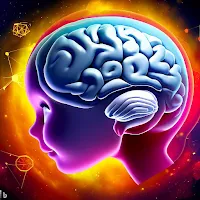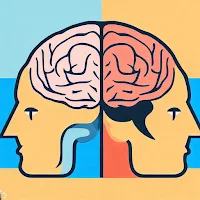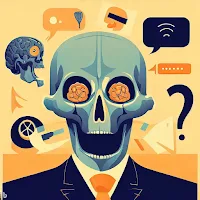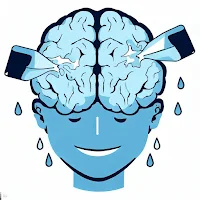Have you ever heard that humans only use 10% of their brains? This is a common setting in science fiction novels and movies, where people gain special abilities such as telepathy or telekinesis when they increase their brain usage percentage. But is this true? Or is it just a baseless urban legend?
In this article, we will introduce the urban legend that humans only use 10% of their brain capacity, and explain its origin and validity. We will also discuss other urban legends and myths about the brain. The brain is the center of human mental activity and behavior, and an essential organ for our lives. By understanding the brain correctly, we can learn more about ourselves and others.
The origin of the urban legend that humans only use 10% of their brains
Where did the urban legend that humans only use 10% of their brains come from? There are various theories about its origin, such as:
- It started when American psychologist and philosopher William James wrote in his book “The Energies of Men” that “humans only use a small part of their available mental and physical resources”.
- It started when French naturalist Pierre Flourens wrote in his book “L’Evolution cérébrale” that “humans do not use their whole brain, and most of it is undeveloped”.
- It started when American psychologist Karl Lashley discovered that rats could relearn tasks even after part of their cerebral cortex was removed, and hypothesized that “the brain does not necessarily use all of its parts”.
- It started when neuroimaging techniques such as PET (positron emission tomography) and fMRI (functional magnetic resonance imaging) developed in the second half of the 20th century, and only part of the brain activity was visible on the images.
All of these theories were born in an era when scientific knowledge about the structure and function of the brain was insufficient, and they are denied by modern medicine and neuroscience.
The truth behind the urban legend that humans only use 10% of their brains
The urban legend that humans only use 10% of their brains is scientifically unfounded. On the contrary, humans use 100% of their brains. Here are some reasons why:
- The brain is composed of cells, and those cells are always active. When brain cells stop working, it means they are dead. Therefore, it is impossible that 90% of the brain is inactive.
- The brain is divided into various regions, each with a specific function. For example, vision, hearing, movement, sensation, language, memory, etc. These regions work together to support our daily lives. Therefore, it is impossible that 90% of the brain is non-functional.
- The brain is connected by nerve cells forming a network. This network is very complex, and there are many paths and circuits. These networks change constantly, and are strengthened or weakened by learning and experience. Therefore, it is impossible that 90% of the brain is disconnected.
- The brain is an energy-consuming organ. The brain accounts for about 20% of the total energy consumption of the body. If 90% of the brain was unused, that energy consumption would be wasted. It would not be evolutionarily rational.
As you can see, the idea that humans only use 10% of their brains is wrong, and there is no scientific evidence for it. Rather, humans use 100% of their brains, and even a small part missing can cause serious damage or impairment.
Other urban legends and myths about the brain
There are many other rumors and myths about the brain besides the urban legend that humans only use 10% of their brains. For example:
- The brain is formed by age 3
- The brain is divided into left and right hemispheres, and there are right-brained and left-brained people
- Playing games or watching TV makes you stupid
- If you don’t remember something you forgot, your cells will die
- The brain contains a lot of water, so drinking water makes you smarter
Are these rumors and myths based on scientific evidence? Or are they based on misunderstanding or misconception? Here we will verify the truthfulness of each one from the latest findings in neuroscience.
The brain is formed by age 3
This rumor is false. The idea that the brain is formed by age 3 originated from the results of brain pathologists who observed the brain under a microscope more than 100 years ago. They found that the structure of the brain became similar to that of adults around age 3. However, this was because they had technical limitations compared to the present, when they can observe the human brain in a living state. In fact, some parts of the brain are determined by age 3, but the brain continues to change until near age 50. The brain has a mechanism to grow at any age12.
The brain is divided into left and right hemispheres, and there are right-brained and left-brained people
This rumor is a big lie. The brain is divided into left and right hemispheres, and each has a specific function. For example, the left hemisphere is responsible for language and logical thinking, while the right hemisphere is responsible for spatial recognition and intuitive thinking. However, this is only a general tendency, and there are individual differences. Also, the brain’s function is not only divided into left and right hemispheres, but also into regions such as front, back, top, and bottom. Moreover, the brain’s function does not work alone, but multiple regions work together. Therefore, dividing people into right-brained and left-brained is a very rough way of looking at the brain3.
Playing games or watching TV makes you stupid
This rumor is true. Playing games or watching TV itself is not a bad thing, but doing it too much can have a negative impact on the brain. When playing games or watching TV, there is no distance between the screen and the eyes, so no eye movement occurs. Also, you don’t move your body, so your muscles weaken. In addition, you may lose track of time and reverse your day and night cycle, or skip meals and disrupt your life rhythm. The part of the brain you use for games or TV is only a small part of it. You don’t use anything else at all. This is a scary situation where even if one part is strengthened, it inhibits the growth of the rest of the brain.
If you don’t remember something you forgot, your cells will die
This rumor is sorry! Even if you remember it, your cells are decreasing. Brain cells start to decrease from around 6 to 10 months after birth. Unused immature cells decrease and do not increase. In other words, whether you remember it or not, your brain cells are decreasing. But don’t worry. There are plenty of immature cells in the brains of 90-year-olds. Also, the brain functions and grows by forming networks between brain cells. These networks change constantly, and are strengthened or weakened by learning and experience.
The brain contains a lot of water, so drinking water makes you smarter
This rumor is true. The brain is composed of about 80% water, and dehydration can have a negative effect on the brain’s function. Dehydration can cause poor blood circulation, which prevents oxygen and nutrients from reaching the brain. Also, dehydration can cause hormonal imbalance or body temperature rise. These things can cause the brain’s function to decline1.
Conversely, drinking enough water can improve the brain’s function. Drinking water can improve blood circulation, which delivers oxygen and nutrients to the brain. Also, drinking water can balance hormones and regulate body temperature1.
In fact, some studies have reported that drinking water can improve reaction speed, concentration and memory . Especially, drinking about 0.5 liters of water before engaging in intellectual work can increase efficiency. Also, for children, even a glass of water can have a positive effect.
Therefore, it is important to drink enough water to maintain your brain function well. However, it is more effective to sip a little bit regularly than to gulp a lot at once. Also, pay attention to the type and temperature of the drink, as they may influence your brain too.
This is the end of the introduction of urban legends and myths about the brain. The brain has the potential to change and grow constantly. For that, you need accurate knowledge and proper stimulation. Let’s use the latest information on neuroscience to activate your own brain!











